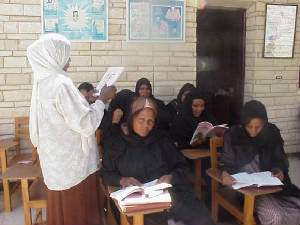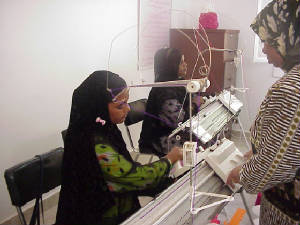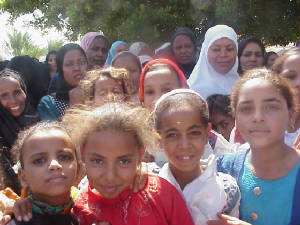EGYPT HEALTH
REFORM1996-2002
The image of Egyptian healthcare was totally changed under the leadership of Ismail Sallam after being appointed as Minister
of Health and Population of Egypt from 1996 to 2002 and in six years. Prof. Sallam was able to define the multiple
challenges hindering the improvement of the health and welfare of the Egyptian people. His revolutionary vision was translated
into a Health Sector Reform Strategy that was based on Elimination of Disparities within
the health services. He, gave high priority to equity, accessibility and equality in health services. The Health Sector Reform
Programs targeted the principals of Health for All with Primary Health Care as the focal point. A package
of services was introduced and made accessible for the whole nation. Family Doctor Approach was implemented and
the distant outreaching groups were covered through mobile clinics.
During his term, there was a significant improvement of Egypt’s key health indicators
over the last five years enabling Egypt to make a remarkable leap to rank 43 out of 191 countries on the index of health performance.
The index reports how efficiently health systems translate expenditure into health as measured by disability-adjusted life
expectancy (WHO, 2000) .
Dr. Sallam led major
successful inter-secrtoral cooperation as he coordinated the efforts of various governmental institutions
on the international and local levels, in order to improve water and food safety and to limit environmental pollution. In
this context, the National Water Developmental Program was founded allowing for continuous surveillance of the public health
water supplies.
The ministery of Health, in one year time, was able to control the epidemics that
threatened the life of many citizens specially in underdeveloped areas. New policies and tactics were implented to prevent
the occurrence of these epidemics. Environmental and social factors were carefuly monitored and kept under close survelliance. Another
major achievement that was attained through this same inter-sectoral cooperation and community mobilization was control of
Malaria in Egypt in1998. The health sector was able to lead the different sectors in rural areas
in providing integrated services, thus maximizing the benefit for development.
The Ministry of Health has recognized the vital role, which civil society can play in public policy, decision-making, research, advocacy,
education, training, monitoring and evaluation. He established in each governorate a consortium of the local NGOs to which
the Ministry of Health responded to their needs and integrated their efforts with the public sector.

Prof. Ismail Sallam stressed the importance of information technology and comprehensive
plans and encouraged studies and research in all health fields in collaboration with local and international organizations.
Establishing modern infrastructure, training the relevant cadres, and introducing information technology and Internet for
decision-making support and performance evaluation have properly developed population and health information systems.
MATERNAL
MORTALITY DOWN 54%
The introduction of women health, antenatal and comprehensive
maternal services reduced the maternal mortality by 54% in 4 years time (2000).
Prof. Sallam stood firmly to point out that no comprehensive development could be achieved
without women empowerment and maximizing their capacity to participate efficiently and effectively in economic, social, political
and cultural development. In a unique initiative to promote women health and to bridge the gender gap, over 1000 women health
clubs were established in underserved areas to deliver comprehensive social and medical reproductive health services.

|
| Vocational Training Program in Health Clinic |
DR SALLAM ABOLISHING FGM IN 1996
Dr. Sallam was highly determined to tackle
gender-inequality issues inside unprivileged groups. Therefore, he undertook important and crucial initiatives such as bravely
issuing a historical Ministerial Decree abolishing Female Genital Mutilation (FGM) IN JULY 1996.



